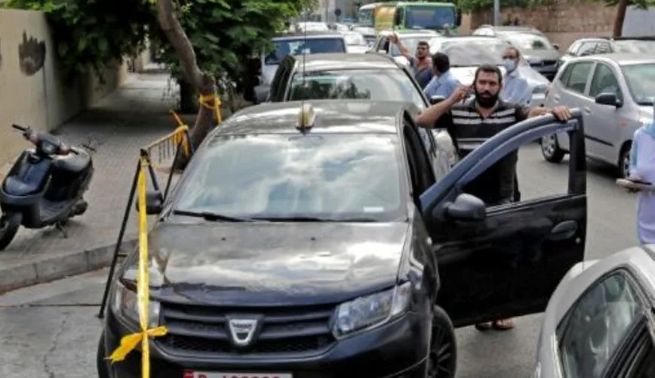Ayla wasn't looking to have a good time on an evening visit to a café in the Lebanese capital, Beirut, as much as she needed a place with air conditioning to alleviate the summer heat for her children beside her. The energy crisis in Lebanon has driven people to unusual solutions in their desperate search for the basic necessities of life, from fresh air to electricity, fuel for cars, and even a working refrigerator.
The thirty-something mother said, "We haven't had a minute of electricity at home for two days. The children can no longer sleep." She told AFP, with her five-year-old son in her arms and her daughter reclining on the couch, "Here, my kids can find some relief for a few hours in an air-conditioned space." Power cuts lasting over 22 hours a day have become the new normal in a bankrupt country whose markets lack almost everything from fuel to medicine, bread, and all essential goods.
The patience of Lebanon's residents is wearing thin, as is their ability to withstand an unparalleled economic collapse that has turned the country completely upside down. Ayla noted, "What we're going through is beyond imagination. We have nothing left; we are deprived of everything, even sleep." She added, "This is hell on earth."
In one barber shop, Ahmad has given up hope of electricity returning and has resorted to using the light from his cell phone to trim a customer's beard. He told AFP, sweat pouring down him from the heat, "We are working under extremely miserable conditions." In other places, salon owners chose to set up barber chairs on the sidewalks to take advantage of natural light amidst the lack of electricity.
The economic collapse has destroyed the national currency, causing the lira to lose much of its value against the US dollar, pushing four out of five people below the poverty line. However, the slow pace of the collapse has accelerated this month after the central bank governor, Riad Salameh, announced the inability to continue subsidizing fuel. Following this announcement, panic ensued, and fuel distributors reduced the quantities being distributed, leading to long lines of cars at gas stations, waiting for their owners to fill their tanks before the new price is set for gasoline.
Some drivers left their cars overnight in front of stations for fear of losing their place in line the following day, causing darkened streets in the capital to be blocked. Most traffic lights turned off their signals months ago, followed shortly thereafter by streetlights and shop signs, which has caused frustration among the city's residents.
But in the mornings, when car owners return to continue their wait at gas stations, the general sentiment shifts to a mix of explosive anger and silent despair. Abu Karim, a taxi driver, told AFP, "My car has been in line at the station for two days, but I still haven't been able to get fuel." He asked, "Is there anything more humiliating and degrading than this?" as the line of cars stretched kilometers behind him.
Abu Karim described the country’s leaders, accused of corruption and negligence, as living in a different bubble, saying, "They lack nothing; they have no electricity or fuel and live completely detached from reality."
In recent weeks, employees have had to stay at home or sleep at work due to the difficulty of commuting and lack of options amid ongoing fuel shortages. The lack of electricity and fuel has also forced many cafes and restaurants to close, unable to continue serving their customers. Those that remain open are often frequented by people wanting to charge their phones and take a break in places with air conditioning.
A well-known bakery with eight branches throughout Lebanon was forced to close three of them and reduce working hours to survive. The resort to the black market for fuel necessary to keep refrigerators running overnight has significantly increased operating costs. Bakery official Elie Zwein told AFP, "We had to buy a 20-liter diesel canister from the black market for 500,000 Lebanese lira (333 dollars at the official rate) to run the generator." He noted that this is five times what he was paying last month.
A few kilometers away, Ahmad Malla, who runs a small bar, had to rely on a UPS and batteries to power the coffee machine and small refrigerators for storing alcohol bottles and ice bags. However, this system does not allow him to turn on lights or even use a small fan in the intense heat. Malla told AFP that his customers prefer to drink in the dark rather than be stuck at home without electricity or cooling. He added, "I have no choice; I can't close the bar... If I don't work, I will starve."




